Master Degree in Marine Biology
Location: Ancona - Brecce Bianche Street - Entrance 3
Access: open access
Order: D.M. 270/04
Type: Second Cycle Degree (2 years)
The course of study in short
Since its foundation, the Faculty of Sciences of the Polytechnic University of Marche has been distinguished in Italy as the first center of excellence for scientific research and didactic training in the field of Marine Biology. Starting from the academic year 2003-2004, the two-year specialist degree in Marine Biology has been activated, currently active as a master degree in Marine Biology.
The need for a Master Degree in Marine Biology lies in the growing awareness that the rapid degradation of the environment is due to human activities, thus compromising the natural capital and with it also our well-being. To reverse the current trend and move towards an ecological transition, strategies based on the best scientific knowledge and technologies capable of combining human needs with the conservation and sustainable use of natural resources are needed.
The new generations will have the responsibility of starting a new path towards sustainability and the Marine Biology course of the Polytechnic University of Marche is structured in such a way as to offer skills and knowledge of excellence in this perspective. The lecturers of the course are involved in numerous strategic research projects and carry out investigations at a global scale, from the Mediterranean to the tropics, from the Atlantic and Pacific Oceans to the poles, contributing to the marine research in the world.
From the 2017-2018 academic year, the Marine Biology Course, following an internationalization path and guaranteeing updated and innovative scientific and methodological approaches, includes courses in English also provided as part of the International Master Degree in Marine Biological Resources (IMBRSea), to which UNIVPM participates together with other European universities. In this context, students, coming from all over Italy and from numerous countries around the world, have the opportunity to acquire their knowledge by attending courses in a real international laboratory, with practical exercises and activities at sea, and with the possibility of taking advantages of supplementary seminars held by scientists of international level.
From an educational point of view, the Master Degree in Marine Biology provides, in addition to theoretical lessons and field and laboratory activities, an internship period in public bodies or companies. The achievement of the Master Degree requires the carrying out of a thesis based on experimental research activities lasting at least one year, included in national and international projects.
The research and teaching infrastructures available to students include a research boat equipped with the main sampling devices, a structure with experimental scientific aquaria and numerous laboratories equipped with the most advanced instruments. Students can attend a first level diving course free of charge (optional on request) and diving activities are possible to make use of the skills acquired. In addition, students have the opportunity to participate in educational trips in Italy and abroad as part of several existing international collaborations.
After the Master Degree in Marine Biology, students can also acquire further qualifications through the International Master in Marine Biology FUNIBER-UNIVPM (one year) and the PhD in Marine Biology and Ecology. Students thus have the opportunity to take advantage of a complete and excellent training system for the profession of Marine Biologist and have the necessary skills to be competitive in the world of research and work.
Professional profile and employment opportunities
Marine biologist
Function in a work context:
The marine biologist studies marine organisms, interactions between living organisms and the environment. For this purpose, the course aims to give the base for the identification of marine organisms and the knowledge about their life cycles. These knowledge are fundamentals in order to identify possible morphological, physiological, genetic, ecological and ethological changes due to global changes. In order to have the ability to identify these changes it is essential that the marine biologist have strong knowledge on zoology and botany with as also on marine ecology, oceanography, conservation and management of marine resources, experiences in field and laboratory work. The marine biologist will be able to manage economically important marine organisms or to identify marine organisms as bio-indicators utilized to screen the health of the natural ecosystem in the environment. They will be expert in the application of provisional modelling and in the management and evaluation of the marine resources.
Role in a work context:
- conservation and management of marine resources
- environmental impact analysis
- Marine Protected Areas
- University
- Research Institutes
Skills associated with the function:
- Researcher in public and private companies; experimental design, utilization of the basic laboratory equipment, analysis of data, sampling methodology.
- Environmental Manager in public bodies: knowledge on national and international environmental laws for the protection and management of marine resources
- Aquariologist in public and private institutes: knowledge of marine species of interest for aquariology.
- Manager in Marine Protected Areas: knowledge on management of the MPA and related legislation.
- Environmental consultant: environmental characterization and environmental impact analysis.
- Aquaculture: knowledge on the main aquaculture techniques used to rear species of interest--.
Employment opportunities:
The main employments opportunities for marine biologist are:
- Researcher in public and private companies
- Environmental Manager in public bodies: Guide in parks and Marine Protected Areas
- Manager of MPA
- Environmental consultant
- Technicians at aquaculture plants
The graduated students reaching at least the minimum credits requested by law in one or more sector could participate to the exams for the admission at the training course for secondary school teaching.



